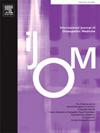Advancing Equitable Osteopathic Practice: Integrating Person-Centredness & Addressing Racial Biases Through the Lens of Critical Theory
IF 1.5
4区 医学
Q2 MEDICINE, GENERAL & INTERNAL
引用次数: 0
Abstract
As osteopaths, many of us ideally endeavour to minimise biased interpretations when evaluating the pain and distress expressed by individuals seeking treatment. However, as a product of the society we live in, we acknowledge that various unconscious biases, including racial bias, may unintentionally and spontaneously influence our view of a patient's condition and perception of pain. This paper explores the intersection of Person-Centred Care (PCC) and racial biases through critical theory in the context of osteopathic practice. It emphasises the ethical duty of healthcare professionals to deliver PCC that recognizes individual experiences, values, needs, and abilities. Racial biases within healthcare settings are identified as contributors to disparities in access, quality, and outcomes. They can also lead to bias in the clinical decision-making process requiring attention in osteopathic clinical practice.
The critical theory framework allows for the identification of opportunities and barriers to implementing PCC and equity in osteopathic practice, highlighting factors such as the impact of implicit bias and structural barriers.
As a result, osteopaths are recommended to take a proactive approach through self-awareness, challenging personal beliefs and actively engaging in cultural humility to minimise racial biases. Osteopathic education could contribute to the cultivation of cultural humility and awareness in training programmes, fostering a passion for fair healthcare among future osteopathic professionals. Ultimately, the integration of critical theory and PCC through cultural humility is presented as an approach to promoting equitable healthcare that empowers individuals.
推进公平的整骨疗法实践:通过批判理论的镜头整合以人为中心和解决种族偏见
作为整骨治疗师,我们中的许多人在评估寻求治疗的个体所表达的疼痛和痛苦时,理想地努力将偏见的解释最小化。然而,作为我们所生活的社会的产物,我们承认各种无意识的偏见,包括种族偏见,可能会无意中自发地影响我们对患者病情的看法和对疼痛的感知。本文探讨了以人为本的护理(PCC)和种族偏见的交集,通过批判理论在整骨疗法实践的背景下。它强调了医疗保健专业人员的道德责任,即提供认识到个人经验、价值观、需求和能力的PCC。医疗环境中的种族偏见被认为是导致获取、质量和结果差异的原因。它们也可能导致临床决策过程中的偏见,这需要在骨科临床实践中引起注意。关键理论框架允许识别在整骨疗法实践中实施PCC和公平的机会和障碍,强调诸如隐性偏见和结构性障碍的影响等因素。因此,建议整骨医生采取积极主动的方法,通过自我意识,挑战个人信仰,积极参与文化谦逊,以尽量减少种族偏见。整骨疗法教育有助于培养培训项目中的文化谦逊和意识,培养未来整骨疗法专业人员对公平医疗的热情。最后,通过文化谦逊的批判理论和PCC的整合提出了一种方法,以促进公平的医疗保健,使个人。
本文章由计算机程序翻译,如有差异,请以英文原文为准。
求助全文
约1分钟内获得全文
求助全文
来源期刊
CiteScore
2.20
自引率
36.80%
发文量
42
审稿时长
3 months
期刊介绍:
The International Journal of Osteopathic Medicine is a peer-reviewed journal that provides for the publication of high quality research articles and review papers that are as broad as the many disciplines that influence and underpin the principles and practice of osteopathic medicine. Particular emphasis is given to basic science research, clinical epidemiology and health social science in relation to osteopathy and neuromusculoskeletal medicine.
The Editorial Board encourages submission of articles based on both quantitative and qualitative research designs. The Editorial Board also aims to provide a forum for discourse and debate on any aspect of osteopathy and neuromusculoskeletal medicine with the aim of critically evaluating existing practices in regard to the diagnosis, treatment and management of patients with neuromusculoskeletal disorders and somatic dysfunction. All manuscripts submitted to the IJOM are subject to a blinded review process. The categories currently available for publication include reports of original research, review papers, commentaries and articles related to clinical practice, including case reports. Further details can be found in the IJOM Instructions for Authors. Manuscripts are accepted for publication with the understanding that no substantial part has been, or will be published elsewhere.

 求助内容:
求助内容: 应助结果提醒方式:
应助结果提醒方式:


